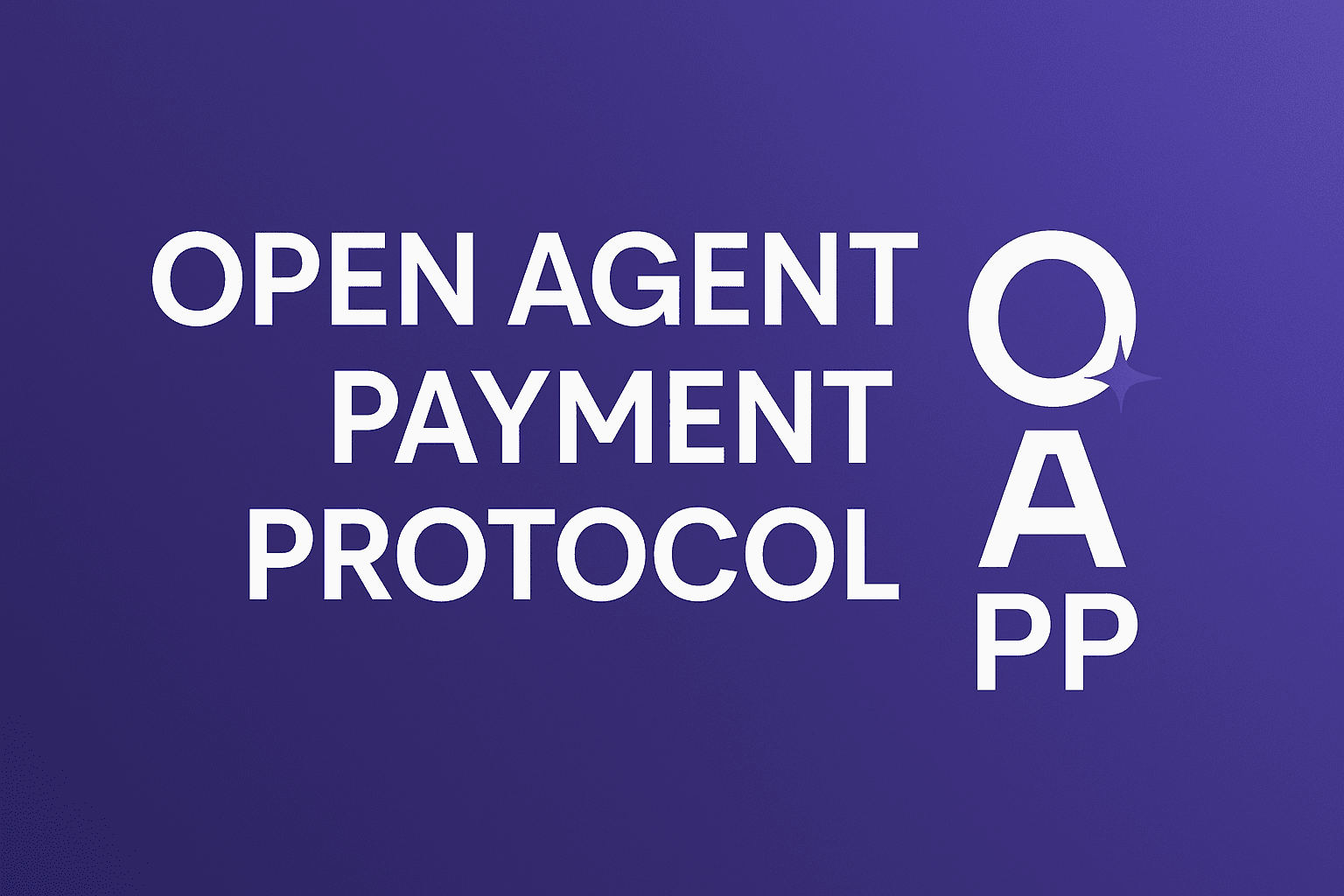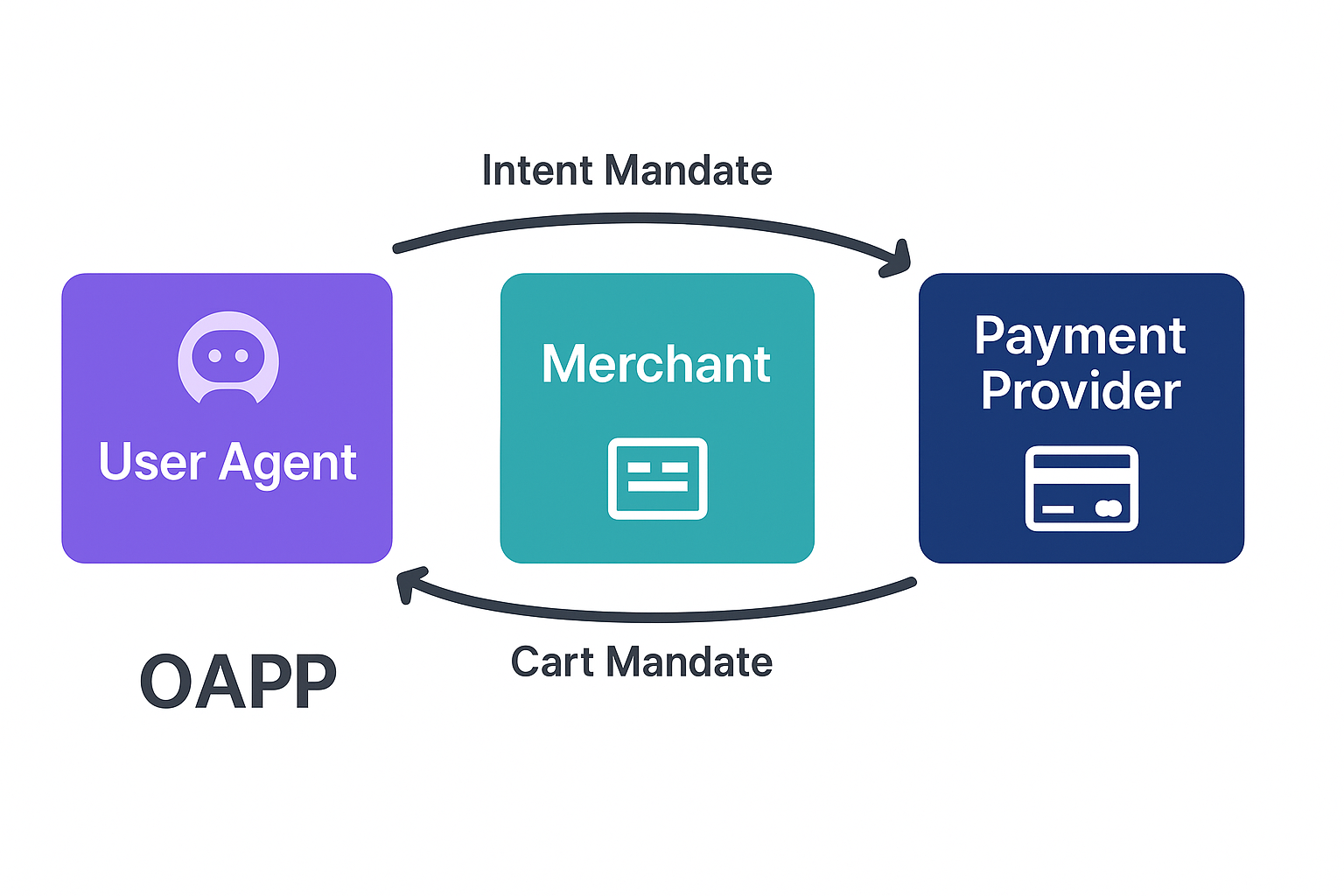- December 23, 2025



The rise of agentic commerce is one of the biggest shifts happening across digital marketing and eCommerce. AI agents are already discovering, comparing, and in some cases completing purchases on behalf of users. Platforms like OpenAI’s ChatGPT and Google’s new agentic interfaces are exploring how to make this secure and seamless.
The question is not if it will happen, but how it will be standardised.
That conversation has so far been dominated by a handful of major players. OpenAI and Stripe recently launched the Agentic Commerce Protocol (ACP) to handle purchase intents and instant checkout within ChatGPT.
Google, meanwhile, announced the Agent Payments Protocol (AP2) as part of its wider ecosystem for agent-to-merchant transactions. Both frameworks are significant, but they are closed by design. They depend on the platform’s own infrastructure, policies, and approval systems.
That leaves a huge gap for open collaboration. Developers, SEOs, eCommerce teams, and AI builders all need a standard that is transparent, portable, and adaptable across multiple ecosystems.
That’s where OAPP — the Open Agent Payment Protocol comes in.
OAPP is a lightweight, open-source alternative to ACP and AP2. It provides a clear, interoperable framework for how AI agents can handle purchase intents, build carts, and process payments with human consent and accountability built in.
At its core, OAPP defines three signed JSON mandate types that represent the full lifecycle of an agentic transaction:
Each stage is cryptographically signed using Ed25519 keys to create a tamper-proof chain of records. This allows complete transparency between humans, AI agents, and payment service providers without tying anyone into a proprietary platform.
The idea is simple: bring structure and consent into agentic transactions without creating another walled garden.
Agentic commerce is inevitable, but the market is still wide open. At the moment, ACP and AP2 serve as early frameworks for their respective ecosystems. ACP enables instant checkout flows directly within ChatGPT, while AP2 is Google’s version for Android and Chrome integrations. Both work well for their own environments, but neither is designed for independent developers, smaller AI models, or open-web adoption.
We need more than two closed standards. We need open alternatives that let businesses experiment, adapt, and integrate with whatever agents or interfaces emerge next. That is what makes OAPP interesting. It is not a competitor to these protocols, but a complement.
It gives developers and marketers a chance to participate early in defining how AI-powered commerce will work across the open web.

OAPP uses a simple structure based on JSON mandates. Each mandate type has a schema that can be validated, signed, and verified using standard tools.
All mandates are designed to be portable over any transport. They can be shared via HTTP, WebSocket, API, or even offline QR codes. Each one can be cryptographically linked using hash chaining, creating a verifiable audit trail from intent to payment.
The repo also includes a browser-based builder and a CLI toolkit. The browser tool is ideal for marketers, SEOs, or analysts who want to explore how data flows across agentic commerce frameworks. The CLI tools handle signing, verification, and schema validation for developers building integrations or testing prototypes.
It is a practical, hands-on toolkit, not a white paper or concept piece. You can clone it, run it, and start experimenting within minutes.
Agentic commerce is not only a developer topic. It has major implications for digital marketing, attribution, and conversion strategy.
If AI agents are going to be the ones browsing, comparing, and buying, then the way we structure data, feeds, and metadata needs to evolve. Product feeds will become negotiation surfaces. Structured data will need to support AI understanding at transaction depth, not just discovery.
Protocols like OAPP make that future accessible. They provide an open reference for how intent, cart, and payment data can move between agents and platforms transparently. For SEOs, that means learning how these data layers work and how to align product catalogues, feeds, and schemas so that your products can be surfaced correctly to agents.
For eCommerce marketers, it means understanding how consent and delegation might change the funnel. Instead of optimising for a human click, you might soon be optimising for an AI’s decision confidence.
OAPP is released under a GPL-3.0 license. That means anyone can use, modify, and redistribute it. You can fork the repository, extend the schemas, or create adapters for your own use cases.
There are already integration stubs for Stripe, Shopify, and WooCommerce, but these are just starting points. The real potential lies in adapting OAPP for new contexts, marketplaces, subscription systems, digital goods, or cross-platform identity flows.
The aim is not to build a competitor to existing payment providers. It is to establish a foundation that keeps the future of AI-driven transactions open and transparent.
Agentic commerce will touch everything from advertising to analytics. We need public, verifiable standards that let the wider community innovate, not just a few major platforms.
1 2 3 4 5 6 7 | cd tools/cli npm install node oapp-verify.js ../../examples/intent.json node oapp-verify.js ../../examples/cart.json node oapp-verify.js ../../examples/payment.json |
1 2 3 4 | node oapp-keygen.js > devkey.json node oapp-sign.js --key devkey.json --in ../../examples/intent.json --out ../../examples/intent.signed.json |
1 2 3 4 | cd tools/builder python3 -m http.server 8080 |
OAPP is not a finished protocol. It’s a starting point. We are still at the very beginning of defining how agents will handle transactions safely and transparently. Right now, ACP and AP2 are leading the charge within their ecosystems, but there is plenty of space for open experimentation.
Just as HTTP became the universal standard for web documents, an open payment protocol for agents will eventually emerge.
Whether that standard comes from the big players or from the open community depends on what we build now.
By publishing OAPP as an open, working prototype, the goal is to push that conversation forward. To make it easier for developers, marketers, and researchers to experiment in the open and to give credit where it’s due when people build on top of it.
If you improve it, fork it, or adapt it for your own product feeds or agent frameworks, please credit the project and share your learnings. The more the community contributes, the stronger the foundation becomes.
We are heading into a world where humans set goals, and agents execute them safely within defined boundaries. That means consent, transparency, and traceability will be crucial. OAPP is a small step towards that world, a framework for collaboration rather than control.
Agentic commerce will not be defined by one company or one standard. It will be defined by the collective effort of developers, brands, and researchers working together to make AI transactions safe, fair, and open.
If you are curious about where this is going, start by exploring the OAPP repository, experimenting with the builder, and imagining what else could be standardised.
The future of digital marketing, eCommerce, and AI infrastructure is up for grabs and it is happening right now.
OAPP is open source. Build on it. Fork it. Credit the work.
Github OAPP repository – https://github.com/sitebee/Open-Agent-Payment-Protocol-OAPP-
Comments: